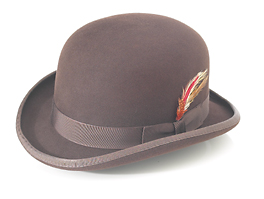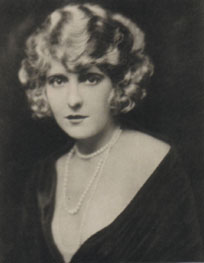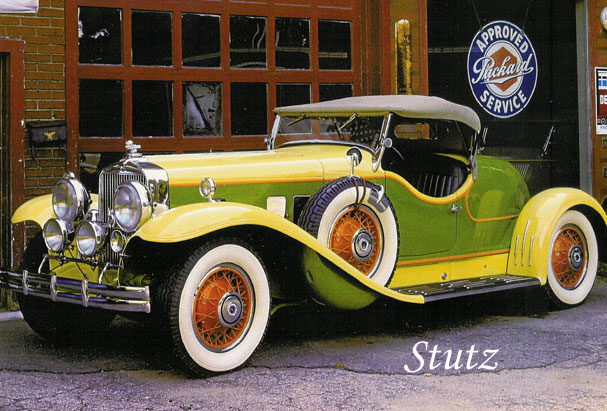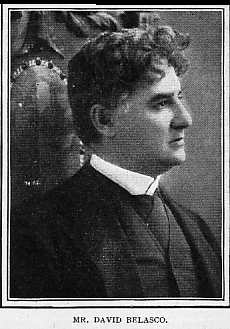This page is sponsored and paid for by Vintage Hammond Church Organs of Houston, TX & Atlanta, GA
This page is sponsored and paid for by Vintage Hammond Church Organs of Houston, TX & Atlanta, GA
 efore he finished High School, Larry had already decided to go to
Engineering School at Cornell, and, having high marks at Evanston High
School, he didn't even have to take any entrance exams.
efore he finished High School, Larry had already decided to go to
Engineering School at Cornell, and, having high marks at Evanston High
School, he didn't even have to take any entrance exams.A classmate's friend at Ithaca, Mario Lazo, writes: "The rugged, competitive life, the bitter cold months, the heavy class schedules, and the high scholastic standards combined to develop character, stamina and self - confidence."* In Larry's case, this life would merely reinforce a development already well-established. He could thank his remarkable mother for that: just the right amount of strictness and encouragement.
At Cornell, he loved the whole thing.** He listened very hard, was interested in everything that was said. He didn't have to study very hard, because most everything came out in the lectures, but again and again he had the feeling, "Why didn't I think of that?" Physics in particular was really his dish.
" e realized," he says, "that we were having the best time in our lives."
And, of course, life wasn't all engineering. Hammond hadn't completely
grown up yet. A small, likeable classmate named Pete went downtown and
bought a new five-dollar derby hat, size 7.
e realized," he says, "that we were having the best time in our lives."
And, of course, life wasn't all engineering. Hammond hadn't completely
grown up yet. A small, likeable classmate named Pete went downtown and
bought a new five-dollar derby hat, size 7.

When Pete looked in his closet to compare the two hats, the humiliating
truth dawned. "Well, nevermind", said Hammond. Let's all go downtown and use your five
dollars to buy four Prince Charlies." This was a dreadful concoction of
layers of incompatible hard liquors, sure to make anyone first drunk, then
sick. It did.
"Well, nevermind", said Hammond. Let's all go downtown and use your five
dollars to buy four Prince Charlies." This was a dreadful concoction of
layers of incompatible hard liquors, sure to make anyone first drunk, then
sick. It did.
 nother prank had to do with clocks, which were later to figure very
largely in Hammond's life. Near him lived a nice boy who wasn't very bright,
but was conscientious and determined, and studied hard from dinner on every
night - often far into the night, and early in the morning, too. Hammond had
a companion strolled into his room late one night as the boy was getting
ready to go to bed. Hammond enraged him in conversation while
surreptitiously handing his watch and alarm clock to the companion. These
were swiftly reset at 6:45, and returned to place. Then they went down to
the pendulum clock in the hall, and set it at 6:45, too. Then they hid in
his closet, and watched him going to bed, through a crack. After a while his
alarm clock went off. It was winter, and at 6:45 A.M. it would be dark, but
the boy couldn't believe the night had already passed - he seemed to have
just fallen asleep. He checked his alarm clock against his watch. They both
did say 6:45. He padded down the corridor to the pendulum clock. Alas! it
confirmed the others. Then he knew he was sunk. He started to go back to
his studies, but finally heard the others laughing in the closet, and
discovered them. But the amazing thing was that he was not in the least bit
mad - just delighted that he could go back to bad. And he was asleep in a
moment.
nother prank had to do with clocks, which were later to figure very
largely in Hammond's life. Near him lived a nice boy who wasn't very bright,
but was conscientious and determined, and studied hard from dinner on every
night - often far into the night, and early in the morning, too. Hammond had
a companion strolled into his room late one night as the boy was getting
ready to go to bed. Hammond enraged him in conversation while
surreptitiously handing his watch and alarm clock to the companion. These
were swiftly reset at 6:45, and returned to place. Then they went down to
the pendulum clock in the hall, and set it at 6:45, too. Then they hid in
his closet, and watched him going to bed, through a crack. After a while his
alarm clock went off. It was winter, and at 6:45 A.M. it would be dark, but
the boy couldn't believe the night had already passed - he seemed to have
just fallen asleep. He checked his alarm clock against his watch. They both
did say 6:45. He padded down the corridor to the pendulum clock. Alas! it
confirmed the others. Then he knew he was sunk. He started to go back to
his studies, but finally heard the others laughing in the closet, and
discovered them. But the amazing thing was that he was not in the least bit
mad - just delighted that he could go back to bad. And he was asleep in a
moment. 

 he movie company offered $100. for the best synopsis of scenarios to be
submitted by a student at the college. Hammond went into the competition.
He based his plot on something his room-mate, an agricultural major had told
him: that very often in animals that are identical twins, one is sterile.
Hammond projected this to humans. His play involved twin brothers, to be
played by the same actor. One brother was married, and there were two
children. The other brother, who had become convinced that if one twin is
fertile, the other must be sterile, had decided no to propose to the girl he
loved, feeling that he'd be gypping her. Whereupon his brother's wife,
greaty moved, confessed that her husband was not the father of her children.
he movie company offered $100. for the best synopsis of scenarios to be
submitted by a student at the college. Hammond went into the competition.
He based his plot on something his room-mate, an agricultural major had told
him: that very often in animals that are identical twins, one is sterile.
Hammond projected this to humans. His play involved twin brothers, to be
played by the same actor. One brother was married, and there were two
children. The other brother, who had become convinced that if one twin is
fertile, the other must be sterile, had decided no to propose to the girl he
loved, feeling that he'd be gypping her. Whereupon his brother's wife,
greaty moved, confessed that her husband was not the father of her children.

This synopsis won the competition, and David Belasco had agreed to read
the winning paper. Well, when Belasco found this plot, he thought, Good God,
is this really true that one identical twin, if they were men, couldn't have
children? So he called up various doctors to ask if there was any basis
infact, and apparantly he got a couple of equivocal answers, as the doctors
weren't prepared to say that time wasn't true, so for a little while he was
all excited about that, but they decided that the plot was kind of too silly,
and they weren't going to do anything about it.
Stimulated by Pearl White's movie serials, Hammond's mind began to work
on a series of his own, on the theme, "As It Might Have Been". One of them,
called "The Broken Rung" was about a minister and his wild son. They
weren't getting along; the father got mad at his son for continually coming
home late, and finally kicked the boy out of the house. The son got an old
ladder, climbed down, ran off with a worthless girl, and ended up as a
flop.
Then came the alternate ending: as it might have been. This time a rung in the ladder breaks, the boy falls and breaks his leg, his father comes out, and finding his helpless son groaning in pain, has compassion on him. They reconciled, and the boy ends up as a minister.
 ammond wrote quite a number of As-it-might-have-been episodes and sent
them to a movie company. He got a letter back saying that the idea is very
depressing to think that life can hang on just a little bit of luck. On this
basis, that producer would have turnded down every one of Thomas Hardy's
stories, too!
ammond wrote quite a number of As-it-might-have-been episodes and sent
them to a movie company. He got a letter back saying that the idea is very
depressing to think that life can hang on just a little bit of luck. On this
basis, that producer would have turnded down every one of Thomas Hardy's
stories, too!
Larry was well-liked at Cornell, and highly respected for his intellect. "He was a thinker, a dreamer in the best sense," says a classmate. "When we'd go to a game together, he'd sit there thinking, with a sort of vacant expression on his face, dreaming. He seemed pretty naive and straight-laced; it seemed that his fun and joy was in thinking out things rather than messing around all the time, the way the other boys did. He was always thinking of something."
Hammond's mind was probing keenly into the very nature of matter, as a letter to his sister Eunice showed. "I have been developing a very elaborate theory as to matter, energy, and the relation of the two... I have all kinds of reason to believe that matter is only a factor of time..." He was very excited about this theory. Relating time and matter was perhaps a stroke of intuitive genius, but he went on to question the existence of molecules. They didn't then have microscopes powerful enough to see certain molecules - as they do today. But beneath the surface, Hammond had become, inside, depressed and discouraged about himself and his future.
Then one day a momentous experience happened to him. It began, oddly enough, with a wild drunken party.had had a great emotional set-back at Cornell, because in my freshman year I went into the Sun Competition in which you act as a reporter and you get stories and you turn them in to the editor and they pick them and put them in the newspaper which is the Cornell Daily Sun. In that thing I came out last, because I was not good at pushing my way in and going and doing what a competitor should have done in a business way. And I had decided that I was just utterly hopeless - I had a feeling that there wouldn't be anything that I could get along in and that I would be a failure in business and I would be one of those fellows who can't really make a living. And I decided, there must be something that I could learn, that I could do, and so I hit on the idea that maybe I could study patent law. That you begin by taking law, and then branch into patent law; because I certainly could understand anything that is mechanical, and I could have a living as a patent lawyer. But it was really pretty awful --- pretty depressing.
I was working towards a degree in mechanical engineering, but mechanical engineers have to have a certain number of electrical courses. There was a course given in electricity, which I was taking, and I had been out on a sort of wild binge and was really drunk at Syracuse, New York, and I ran for the last train, to the station, along with two other boys. We ran and just managed to get onto the back of the last car as it was going. And when we got on there, which was a tremendous victory, to get on at all - then we discovered that the door to the cabin was locked. So we rode home - we had no way to get help - we pounded on the door - the conductor didn't know these junkies were out on the back end, and we were just frozen to death, oh God it was cold. Of course I'm sure that had a very sobering effect. It's about a 25 or 30 minute ride, maybe. But cold - cold so that I was just shaking with cold. And when I got to Cornell - you know the campus is way on top of the hill - we ran up the hill, also, so that I arrived at the top of there absolutely pooped, and no longer as drunk, of course, as I had been. But I ran in to the electrical school, and I saw people that I knew- boys that I knew, taking the examination which by that time had been going for some time. And when you go in you pick out a blue examination blank which is there all ready for you to pick up, and you pick up the questions, and you go and sit and write. Well, I thought, why My God I don't see how -- These questions .. I don't remember ever studying anything that would be the least bit like this. I haven't got a clue.
nd the question was in the field of alternating current, or so it said, Suppose a modern installation to generate alternating current was the single purpose of a whole establishment, and that the system had broken down - something had happened that had made the generators fall out of step, all the circuit breakers were blown, and the machinery was at a standstill, making a major crisis - no service to the public. What do you suppose could have happened - and what would you do about it?
I said, well now, Good God, there is nothing that - there was nothing in the course like that! And then I thought, well, oh - I know what's happened. I looked around here and I saw boys that I knew, but they were not boys in my course in electricity - they were other boys. I was taking the wrong exam. So then I thought well, look - brace up - use your brains and see if you can't solve this some other way.
Electricity - alternating current electricity - has a parallel- it can be compared with liquid being pumped back and forth - there's very well-known comparison, which says you have a cylinder with liquid that is driven back and forward at a frequency characteristic of the system - 60 cycles if that's what it is, and the liquid is pushed one way, pushed another way, and flows around through a set of pipes and eventually gets to the other side; sometimes it's going through small pipes at high velocity and sometimes its doing the opposite. And the Bernoulli Theorem is a theorem by which you calculate, not things in electricity but things in mechanics. So I converted this thing- to this generator- and I said, o.k., I'll solve this thing - and I made a drawing - and I showed a cylinder - but I didn't show it in any detail. It was all terribly sketchy, but still you could see that it was something like that. And then I went ahead and solved this by Bernoulli, and Bernoulli's solution was all very straight forward, and it arrived at an answer. And at that time in the Electrical School and much of Cornell, the theory was, you get the answer and you pass the course and it doesn't make any difference how you do it. Thats your problem. So I turned in the paper and staggered out. And all my friends were saying, "Larry, where have you been?" I said, "I've just been taking an electrical exam." Then they said, "Well, where did you take the exam?" And I realized - well they've all come from the place I should have gone to. And this other was a completely different room; and the only reason that I didn't know it at first was that I knew boys whether they were in electricity or mechanics - I didn't realize that they were boys who were not taking the course I was taking. And then I thought, oh My God, I don't know what will happen.
Now the Professor - the Head of the Electrical School, in fact, at the time, was a man named Karapetoff, who was quite a famous electrical man who had done great achiements and won medals and all kinds of thing - but he was a terrible crank on the subject of drinking or smoking. Anybody who drank or smoked, as far as he was concerened, he was ready to throw them out of the school. Of course he didn't have the real authority to do that, but he seemed to be threatening to. And a day or two later it was, "Oh Good God - here I've got summons from Karapetoff" - and when I went to his office he said, "Hammond, I have here your paper in which you came out with the right answer to a question for which you had never studied, and so it is obvious you hired some fellow - perhaps already a graduate - to come and take the examination here", and he said, "You know this will dismiss you from the college."
I told him. "Professir Karapetoff, I'm not that kind of a person. As a matter of fact, I got drunk. I was sobored up some, but got here late. As soon as I saw the examination, I thought, this is nothing I have studied, so I might as well give up and tell you I'm not in a condition to take it; then I got interested... I saw I could solve it by Bernoulli - - and I did."
e looked at me and he looked at my paper. "You say you solved it that way?" And I said,"Yes, now look at the doodlings here. I mean, I didn't draw it all out very clear, but the final part, which is strictly Bernoulli, is perfectly legitimate, and you connot fail to see that I did solve the thing by Bernoulli."
And he kept looking at me and at the paper, and then he asked me a few things about Bernoulli, and he finally said, "Well, you are one of those people that apparantly has some kind of a gift for this sort of thing. And I believe you - it's incredible, but I believe you." But he would give me the lowest passing mark.
And I said, "I don't ask - I'd be very happy to take the regular examination again, if you'd just let me take it."
And he said, "Oh that - that is utter nonsense. Anybody who could solve this problem, could solve any question that we could give him in Electrical School." He said, "You go out, get out of here." I got out of there.
Well, the thing about that was it had a profound effect on me- because I said now all those thoughts I had about being hopeless- it's just not true. It is a fact that I have a talent for this stuff. I'm really kind of a genius! Well, I am certainly going to ... just take the bull by the horns and go right in and just become an indepedent inventor.
f course later on everyone asked me, "Well, what is it you're going to do?" I would say, "I'm going to be an independent inventor." And everybody said, "Well look, Larry, there is no such trade. You can't be an independent inventor. You can go work for some corporation, and get in on the research part and invent things." And I said, "No - the fact that you don't know any independent inventor doesn't mean that there couldn't be one." And so on. And I kept saying that to myself- and, I made it. And that's a strange thing, because very few people do.
** His gratitude was later expressed in very practical ways until the University went out of its way. as it seemed to him, to invite several dozen minority group practicals to attend, who came with guns, seized buildings, and made controversial demands to which the administration capitulated. Then his gifts ceased. This seemed to him the only way to express his sense of outrage.
| VII First Job: McCord | Index |
ęCopyright 1974, Stuyvesant Barry All Rights Reserved May not be copied, published, used on anyone else's web pages or in any way without express written permission.